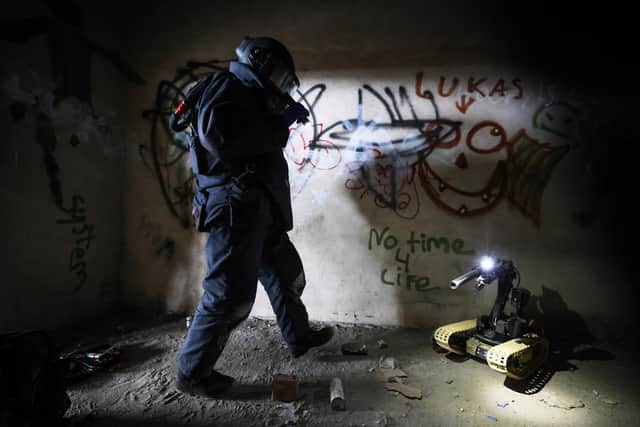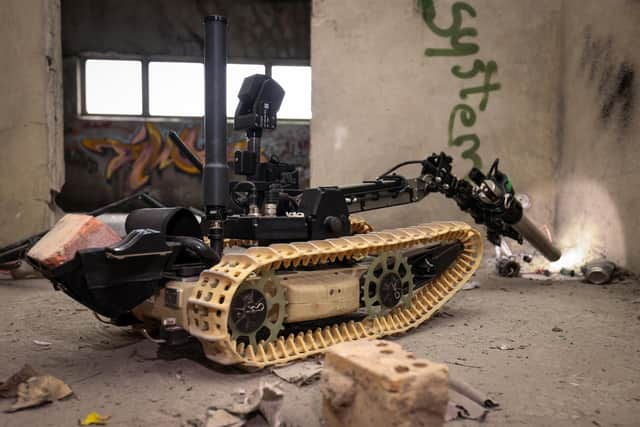Royal Navy divers from Portsmouth undertake 'importance' explosives clearance using state-of-the-art drones in Lithuania
and live on Freeview channel 276
Delta Diving Unit from the Diving & Threat Exploitation Group (DTXG) based on Horsea Island in Portsmouth, practised identifying – and neutralising – a range of explosive devices in the water and ashore across Lithuania.
Alongside their Canadian, Lithuanian, US, Dutch and Estonian counterparts, the Portsmouth divers scoured ports for historic ordnance from previous conflicts.
Advertisement
Hide AdAdvertisement
Hide AdRobots and autonomous vessels were also tested to aid with operations, including the use of Remus – a torpedo-shaped submersible which can survey and map possible ordnance.


Leading Diver Rimmer added: ‘It’s been good for the young lads, some of whom are on their first multi-national deployment. It’s really useful for them to see some of the IEDs and mines that have been set up and to get the chance to dive in unfamiliar waters.’
Able Seaman (Diver) Alex Bonato, who undertook explosion clearance in forests and lakes near Klaipeda, said the training was ‘really important’ given the ‘current threats’ around the world.
He said: ‘The way we operate is pretty similar to our NATO allies, but working with them has taught me things and I have been able to share our techniques with them too.
Advertisement
Hide AdAdvertisement
Hide Ad

‘I have worked alongside them and other allies in a number of scenarios from multiple IEDs hidden along a forest path to floating mines located near ports.
‘Seeing how they set up devices, it being different to how we would, expands our knowledge and ensures we’re prepared for anything. It has been really useful.’
